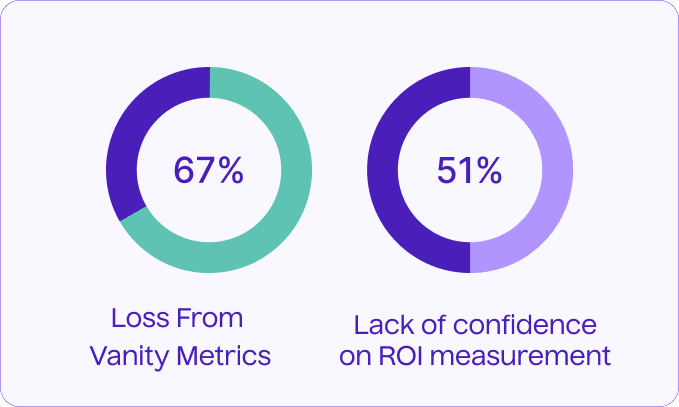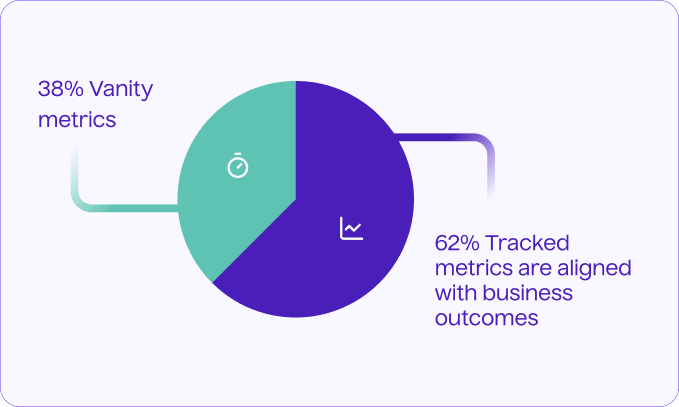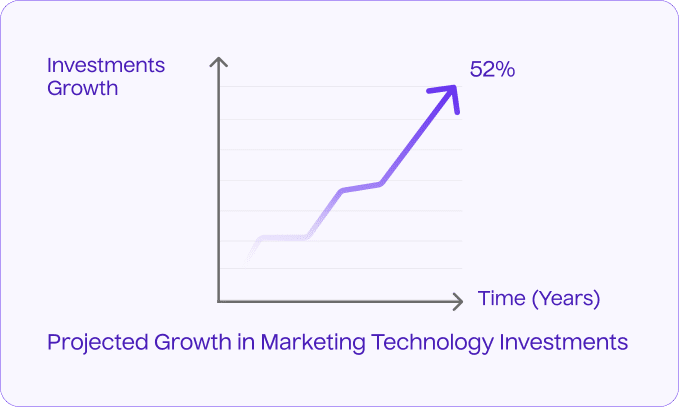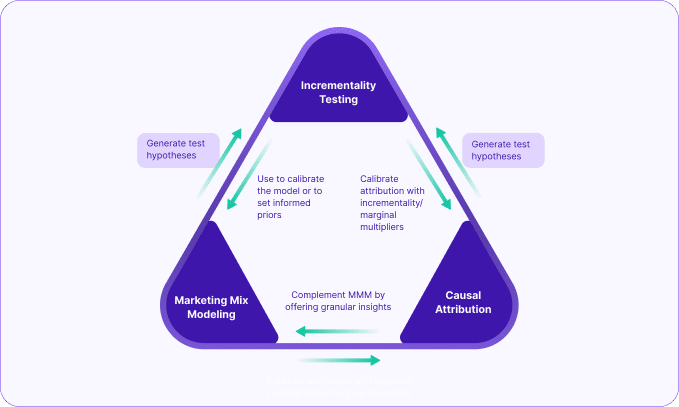As 2024 comes to a close, the marketing world is looking back on a year marked by significant transformations. Budgets soared, digital platforms solidified dominance, and marketers embraced new strategies to navigate an increasingly complex landscape. While these shifts present immense opportunities, they also highlight critical gaps in measurement and resource allocation that brands need to address to thrive in 2025.
In this blog, we’ll dive into the most pivotal marketing measurement stats of 2024, offering insights into budget trends, performance marketing, advanced measurement techniques, and channel-specific challenges.
Marketing Budget Trends
In 2024, the advertising industry demonstrated a strong shift toward digital-first strategies and data-driven investments, with marketers adapting to evolving consumer preferences and economic realities.
- Only 27% of total ad budgets were allocated to non-digital platforms, underscoring the dominance of digital strategies in 2024.
- Only 50% of brands optimized their media investments, leaving significant ROI potential untapped in 2024.
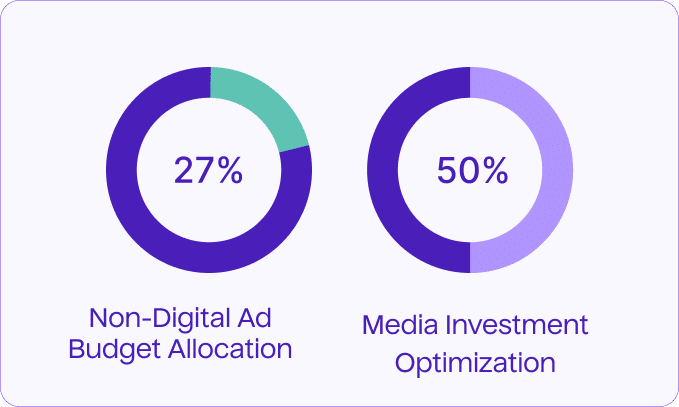
These statistics highlight the growing emphasis on measurable, high-performing strategies and the continued evolution of budget allocations to align with modern marketing goals.
Importance of Performance Marketing
Performance marketing emerged as a critical focus for marketers, emphasizing measurable outcomes and data-driven decision-making.
- Performance marketing effectiveness could significantly improve if brands prioritize better measurement of short-term activities, which remains a key challenge for many marketers.
- Focusing on vanity metrics resulted in a loss of up to 67% in measurable business effects, emphasizing the importance of prioritizing actionable insights.
- Over 51% of marketers lack confidence in accurately measuring their social media ROI, highlighting the gaps in existing attribution and measurement systems.
These trends underline the importance of refining performance marketing strategies and investing in advanced tools that deliver actionable insights and meaningful results.
Adoption of Advanced Measurement Techniques
Marketers in 2024 recognized the growing need for robust measurement frameworks to maximize campaign impact and ROI. However, gaps in adopting advanced techniques remain evident.
- Brands that fail to implement best-practice measurement approaches, such as MMM, incrementality testing, and causal attribution, risk losing out on up to 42% of potential marketing effects.
- Only 62% of tracked metrics focus on meaningful business outcomes, with the rest tied to less impactful vanity metrics. This limits marketers’ ability to make data-driven decisions that drive growth.
These insights highlight the pressing need for marketers to move beyond basic attribution models and adopt advanced measurement techniques to ensure their efforts align with business goals.
Channel-Specific Performance Insights
In 2024, marketers re-evaluated their channel strategies, balancing traditional and digital investments to optimize performance and ROI.
- Despite a reduction in linear TV spending over the past two years, over 82% of marketers still maintain some level of investment in the channel, leveraging its reach alongside digital alternatives.
- Over 51% of marketers lack confidence in measuring social media ROI accurately, indicating the need for better tools and frameworks to evaluate digital performance.
These statistics underscore the importance of an integrated approach to channel performance, combining digital innovation with select traditional investments for maximum impact.
The Role of Technology in Marketing Budgets
Technology played a transformative role in shaping marketing budgets in 2024, driving smarter investments and improving campaign efficiency.
- Marketing technology investments are projected to grow by over 52% in the next five years, showcasing the rapid pace of digital transformation.
- Despite AI being a significant trend, 40% of marketers have not prioritized AI investments, leaving room for broader adoption across the industry.
- Only 28% of marketers had to deal with flat or reduced ad budgets in 2024, signaling widespread confidence in technology’s role in driving growth.
These insights demonstrate the increasing reliance on technology to streamline decision-making, enhance measurement capabilities, and maximize ROI across all marketing channels.
Unified Marketing Measurement (UMM) Trends
This year, marketers increasingly turned to unified marketing measurement frameworks to gain a clearer picture of campaign effectiveness and maximize ROI, though challenges persist in adoption.
- Almost 30% of marketers have adopted advanced attribution models, signaling a slow yet decisive transition toward more comprehensive measurement methods.
- Brands that fail to adopt full-funnel measurement techniques risk losing up to 42% of potential marketing effects, highlighting the importance of Unified Marketing Measurement in modern marketing strategies.
Looking Ahead: Leading Investment Priorities for 2025
As we move into 2025, US brand and agency marketers are focusing on strategies that maximize ROI, leverage advanced technologies, and enhance data-driven decision-making.
- 47% of marketers are prioritizing investments in attribution and measurement, underscoring the critical need to evaluate marketing performance effectively and allocate budgets with precision.
- Only 29% of marketers are focusing on AI technologies and connected TV/video, reflecting opportunities for further adoption as these tools become essential for automation and engagement.
- Just 23% of marketers are investing in first-party data solutions, despite increasing privacy concerns and the value of owned data in driving long-term growth.
- 18% are turning to social and influencer marketing, signaling its role in engaging audiences, though it remains underutilized compared to other priorities.
- Programmatic media and omnichannel strategies capture only 24% and 28% of investments, showing a need for brands to optimize cross-channel performance.
Success in 2025 will depend on brands’ ability to adopt advanced measurement frameworks, focus on actionable insights, and balance investments across digital and traditional channels. Marketers must embrace tools like MMM, incrementality testing, and causal attribution to refine their strategies and maximize ROI. You will find all these tools in Lifesight’s Marketing Measurement Platform.
Future-proof your marketing strategy with Lifesight’s advanced measurement solutions. Book a demo today to take the first step.
You may also like
Essential resources for your success

